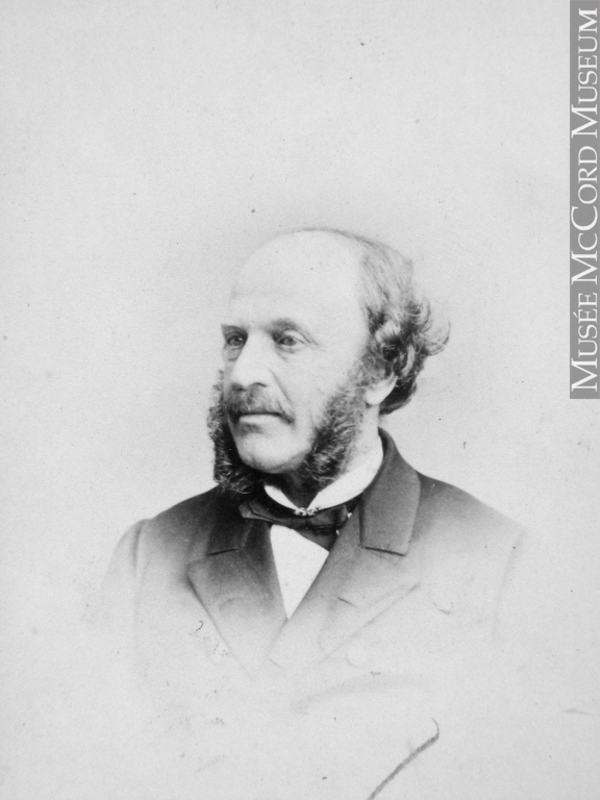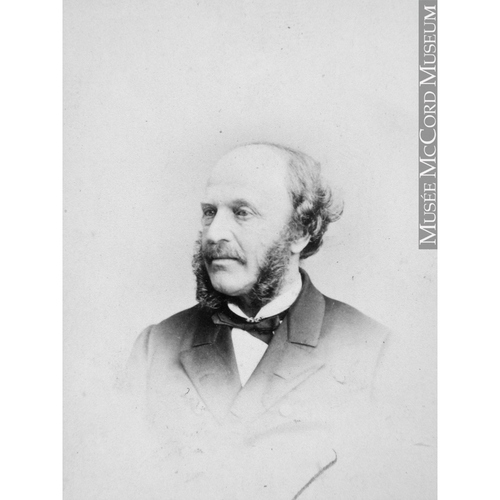
Source: Link
CAMPBELL, THOMAS EDMUND, military officer, secretary, politician, seigneur of Rouville; b. in London, Eng., perhaps in 1809, probably in 1811; d. in 1872, probably at Saint-Hilaire, Que.
Captain Thomas Edmund Campbell arrived in Canada in 1837 after 14 years of service in the British army (which included numerous postings in the Near East), and soon came into the limelight when, on 10 Nov. 1838 as commander of the Mohawks at Caughnawaga, he took part with the volunteers of the Lachine brigade in the attack on the rebels at Châteauguay. Afterwards the volunteers set fires and began to pillage a number of houses and terrorize the habitants; he sought out the ringleaders, who were all white, placed them under arrest in Lachine, and conducted the Indians back to Caughnawaga. For their part in the capture of 75 Patriotes, the Indians were congratulated and mentioned in dispatches by Sir John Colborne*.
A year later, Major Campbell (as he now was) became aide-de-camp and military secretary to Governor Charles Edward Poulett Thomson*. In this office he played a decisive role in the election of 1841, acting as “election agent” in Lower Canada for Thomson, now Lord Sydenham, and being, as the governor himself averred, his “sole reliance” for victory. He it was who formulated the strategy of placing the polling stations in areas where they would be most convenient to “loyal” voters who would support the union, and of making sure any troops which might be dispatched to “check violence” would be available only to sympathizers with the governor. In Beauharnois he personally led the military into their positions around the poll to prevent the anti-unionists from voting. His advice and tactics won an unexpected 20 out of 42 seats for Sydenham in Canada East.
Sometime about 1840 he had married Henriette-Julie Juchereau Duchesnay, and four years later acquired the seigneury of Rouville. (He was survived by one son, Bruce.) In 1846, having retired from the army, he settled in Saint-Hilaire to become almost wholly involved in developing his land. He set apart over 150 acres as a model farm, and took a deep interest in the growing of trees. In the mid-1850s, when he heard of Principal John William Dawson*’s work at McGill in natural history, he sent him a carload of spruce trees and the saplings which apparently became the great elms bordering the campus’s central avenue. In 1848, Lord Elgin [Bruce*] described Campbell as “one of the most enterprising seigneurs in the province.”
Perhaps because of his success, certainly because of his compatibility with both linguistic groups (all the transactions of Major Campbell’s seigneury were conducted in French), Lord Elgin prevailed upon him to become his civil secretary. As such, he was also ex officio superintendent-general of Indian affairs, for between 1844 and 1860 all civil secretaries automatically served in this capacity. Having taken office on 31 March 1847, he resigned on 30 Nov. 1849 because of Lord Elgin’s (and the capital’s) move to Toronto. Once again he retired to Saint-Hilaire, whence he re-emerged in the winter of 1854–55 on a commission appointed to consider military defence. He sat with Sir Allan Napier MacNab* and Colonel Étienne-Paschal Taché*, their report resulting in the Militia Act of 1855 with its double system of sedentary militia and “volunteers.”
In the general election of 1857 he was elected as member of parliament for Rouville, and in the house voted consistently with the Conservatives of Canada East. In 1861 he was defeated by the Liberal Lewis Thomas Drummond*, and retired from politics. He continued his interest in defence, however, and when the American Civil War and the Trent crisis provoked increasing anxiety in the colony, he agreed to sit on another commission formed in January 1862. In addition to Colonel Campbell (as he now was), who spoke for the military forces of the province, the commission was composed of George-Étienne Cartier, John A. Macdonald*, Alexander Tilloch Galt*, and Sir Allan MacNab acting for the political interests, and Colonel Daniel Lysons*, a regular British officer who represented imperial concerns. The report of this commission, dated 15 March 1862, was a strong plea for the old sedentary system, from which a force could be trained to constitute the real defence of the Province of Canada. It was on the bill resulting from this plan that the Cartier–Macdonald government was defeated.
Although he became a director of the Bank of Montreal and of the Grand Trunk Railway, Colonel Campbell always maintained that the development of his seigneury was his central interest. He greatly enjoyed the rural life of French Canada. On 12 Oct. 1855, at a banquet in Cobourg to honour Sir Edmund Walker Head*, he is said to have declared about the habitant: “I have now lived nine years among the French Canadians, and I believe I can honestly claim to have learned something about them, and speak about them with some authority. Believe me, Jean-Baptiste, as the French-Canadian is often called, is an honest and good subject. He is hard working and kind. . . . I have never lived among better people.”
[Bruce and Grey], Elgin-Grey papers (Doughty), I, 20, 28, 54, 66, 134, 387; II, 810–11. [C. E. P. Thomson], Letters from Lord Sydenham governor-general of Canada, 1839–1841, to Lord Russell, ed. Paul Knaplund (London, 1931), 110. Canada and its provinces (Shortt and Doughty), VII, 396–401. Cornell, Alignment of political groups. E. J. Devine, Historic Caughnawaga (Montreal, 1922). E. A. Collard, “Popular Major Thomas Campbell,” Gazette (Montreal), 11 Feb. 1943. P.-G. Roy, “Le major Thomas-Edmund Campbell,” BRH, XI (1905), 359–61.
Cite This Article
Jacques Monet, “CAMPBELL, THOMAS EDMUND,” in Dictionary of Canadian Biography, vol. 10, University of Toronto/Université Laval, 2003–, accessed December 26, 2025, https://www.biographi.ca/en/bio/campbell_thomas_edmund_10E.html.
The citation above shows the format for footnotes and endnotes according to the Chicago manual of style (16th edition). Information to be used in other citation formats:
| Permalink: | https://www.biographi.ca/en/bio/campbell_thomas_edmund_10E.html |
| Author of Article: | Jacques Monet |
| Title of Article: | CAMPBELL, THOMAS EDMUND |
| Publication Name: | Dictionary of Canadian Biography, vol. 10 |
| Publisher: | University of Toronto/Université Laval |
| Year of publication: | 1972 |
| Year of revision: | 1972 |
| Access Date: | December 26, 2025 |



